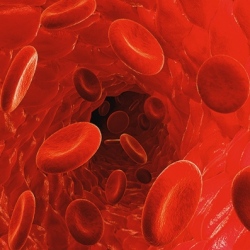
Unity Biotechnology is a leader in developing treatments to eliminating senescent cells, which are a mechanism of aging and a driver of many age-associated diseases. Senescent cells normally destroy themselves and they are also removed by the immune system; As the immune system weakens with age, an increasing number of these cells build up.
The health and lifespan of mice have been demonstrated to improve by the removal of senescent cells using a transgenic suicide gene, and additional experiments showed that the same could be achieved using small molecules. A cell becomes senescent when it loses its ability to divide.
This happens as a response to DNA damage, and it is thus a sort of safety measure to prevent the proliferation of cells containing potentially harmful mutations, such as cancerous ones.
Senescent cells comprise a small number of total cells in the body, but they secrete pro-inflammatory cytokines, chemokines, and extracellular matrix proteases, which, together, form the senescence-associated secretory phenotype, or SASP. The SASP is thought to significantly contribute to aging and cancer; thus, senolytics and the removal of the SASP are a potential strategy for promoting health and longevity.
In June 2018, Unity Biotechnology started the very first human trial to test senolytic drugs. The UNITY Biotechnology candidate senolytic drug UBX0101 is now being tested in human patients who suffer from osteoarthritis.
* In an interview in 2016, Nathaniel David (CEO, Unity Biotechnology indicated that he thought that the Unity Senoloytic drugs would be approved for commercial usage around 2023. He indicated the clinical trials would start at about 2018 and he was right.
* In the video, Nathaniel feels that the various localized versions of senolytics would eventually give confidence to the FDA that eliminating senescent cells throughout the body would be safe and effective and that this could be achieved in the 2030s.
Nathaniel feels that Senolytics by themselves would improve healthspan and reduce age-related diseases in humans.
It will take treatments that are effective against all types of aging damage (identified by Aubrey de Grey and SENS) for significant life extension to occur.
UNITY also has a second drug candidate, UBX1967, an inhibitor of specific members of the Bcl-2 family of apoptosis regulatory proteins, which is slated for an IND application and a Phase 1 clinical study for an ophthalmological indication in the second half of 2019.
